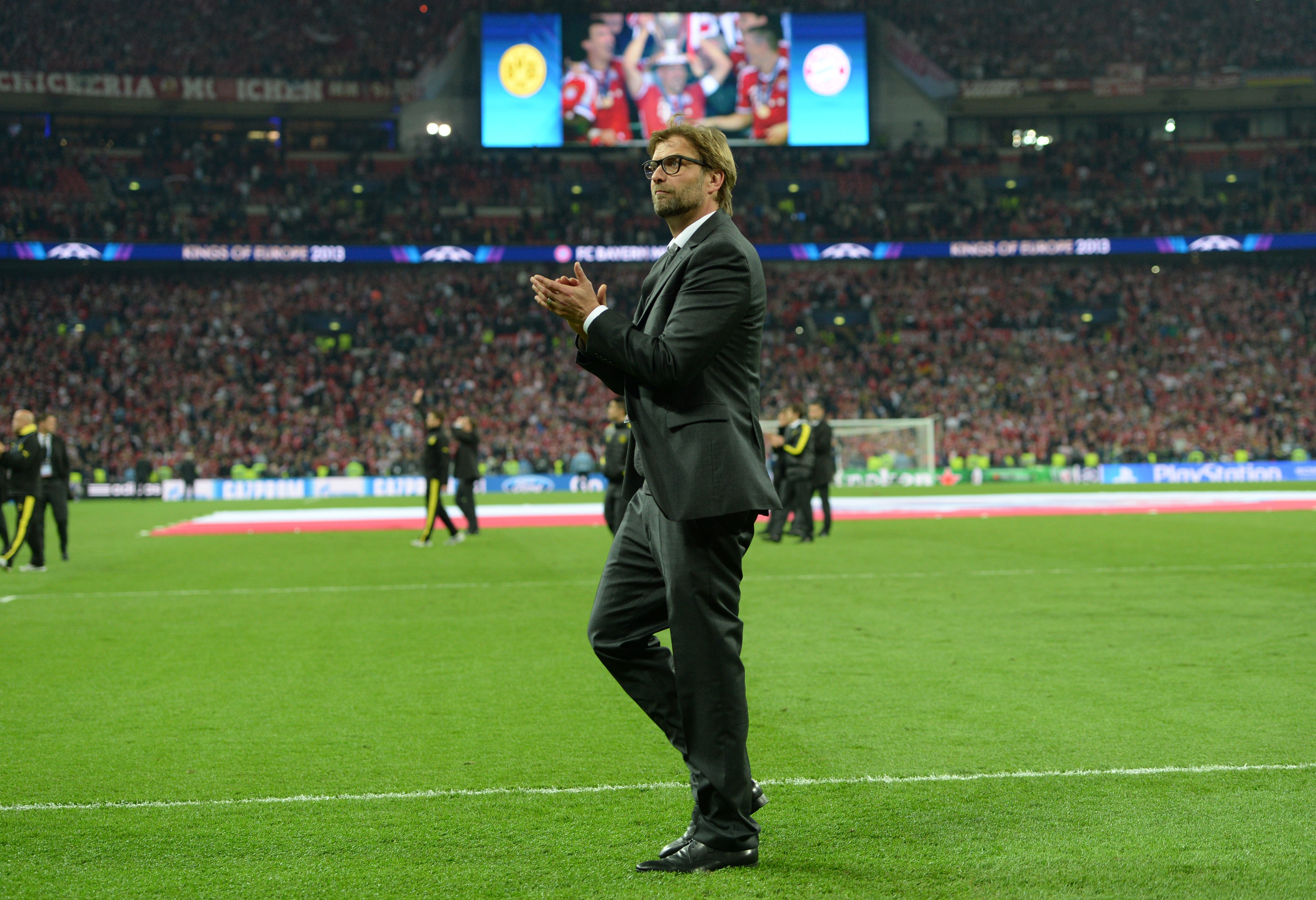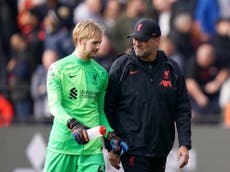Jurgen Klopp keen to right wrong of Liverpool’s surprising cup record
For a team that has helped to set arguably the highest standard of play this country has ever seen, it is striking that Klopp and his side are yet to win a domestic cup

Your support helps us to tell the story
From reproductive rights to climate change to Big Tech, The Independent is on the ground when the story is developing. Whether it's investigating the financials of Elon Musk's pro-Trump PAC or producing our latest documentary, 'The A Word', which shines a light on the American women fighting for reproductive rights, we know how important it is to parse out the facts from the messaging.
At such a critical moment in US history, we need reporters on the ground. Your donation allows us to keep sending journalists to speak to both sides of the story.
The Independent is trusted by Americans across the entire political spectrum. And unlike many other quality news outlets, we choose not to lock Americans out of our reporting and analysis with paywalls. We believe quality journalism should be available to everyone, paid for by those who can afford it.
Your support makes all the difference.Look up images of Jurgen Klopp’s two previous Wembley finals and you will notice there is something different about his attire and appearance. There’s no baseball cap at a jaunty angle, no sports jacket or trackie bottoms. He is wearing a suit, in fact, and it’s a bit like seeing a dog walk on its hind legs.
“I am pretty sure that someone told me before the Carabao final that I needed to wear a suit,” Klopp claims, insisting it was never his idea. The same had happened with Borussia Dortmund, before the Champions League final in 2013. “Then when I saw the first coach next to me without a suit, I thought: ‘Are you kidding me?!’”
Klopp only ever wears a suit if he has to and has realised now that he does not have to. “I could stand there in swim shorts as long as we win, people will be happy. If we don’t win, it will be a big story. If we win it, no one will talk about it,” he says. “I will not wear swim shorts though!”
Whatever makes you feel more comfortable, Jurgen, because this is still something of a new experience after all.
For a team that has helped to set arguably the highest standard of play this country has ever seen, and for a Premier League- and Champions League-winning manager who will be remembered in posterity as one of the best, it is striking how few trips Liverpool and Klopp have made to English football’s spiritual home.
Not including a couple of visits to play Tottenham during the redevelopment of White Hart Lane, the 2016 League Cup final is the only time that Liverpool have played a competitive game at Wembley under Klopp, losing 3-1 on penalties to a pre-Pep Guardiola Manchester City. Add Dortmund in there and Klopp’s personal record at Wembley is two trips, two defeats.
“I am a man for the third chance!”, he says. A Champions League winners’ medal only came after the third time of asking, after all, and third time may be a charm for Wembley success against Chelsea on Sunday. It would be a first domestic cup for Klopp’s Liverpool, despite league, European and world titles.
“They are desperate to put another in the trophy room,” Klopp says. “This team, we all know that in the moment the people are really happy. But in 20 years if you want to talk about this team, I would not be surprised if people would then say if we don’t win anything any more, they’ll say: ‘Yeah they were good, but they should have won more’.”
Some might say that honour roll would be longer if Klopp had always played his strongest line-up in either cup. Critics have, at times, accused the Liverpool manager of not always treating the competition with respect. Yet he is far from the only manager to rest and rotate players in it and argues it is out of necessity, rather than choice.
“I’m sure since we worked together you thought once or twice that I couldn't be bothered about the Carabao Cup, I know that,” he says. “I wish you would have been once in my situation between two other games making a decision about the team for this one game and considering all the information I had from the medical department. And then you say afterwards, you obviously don’t want to win it. No. I just collect the bones and use the last of the few guys we have.
“It was absolutely never the case [that we weren’t taking the competition seriously]. I don’t think we ever could have lined up differently in the specific games considering the intensity of the schedule around it. That’s it.”
And this season, Klopp has perhaps learned to savour each and every success, regardless of the competition it comes in. If Liverpool lift the three-handled trophy on Sunday, it will be the first time he has had the opportunity to celebrate silverware since the most challenging time of his managerial career to date.

It was around this time last year that his injury-ravaged side were threatening to collapse in on themselves, when they turned a 68-game unbeaten streak at Anfield into six home defeats on the bounce. The defence of the Premier League title fell apart spectacularly. Top-four and a place in the Champions League began to look like a long shot.
“After winning the Premier League, winning the Champions League, winning other cup competitions, I think finishing third last season comes next pretty quickly because that was absolutely incredible how we did that in the end. Incredible,” Klopp says. “We were pretty much on three wheels getting somehow over the line.”
Playing in an empty Anfield was difficult – “You are still Liverpool but with half-cut wings. You try to fly but it is pretty difficult,” he says – as were decisions over the inexperienced centre-half pairing who held the defence together at the most critical points of the injury crisis. “Should I have trusted Rhys [Williams] and Nat [Phillips] earlier? That was a question I asked myself a lot of times.”
Perhaps the hardest thing for Klopp, though, was having to explain why results were not up to standard. He found himself walking a tightrope every weekend, trying to honestly analyse and assess his side’s performances while not destroying the confidence of young players stepping in for absent regulars.
“The most difficult thing in my job is to explain a defeat. You lose a game and naturally I can only say maximum 40 per cent of what is really happening. I can’t say: ‘It’s because he hasn't been performing for six weeks’ or whatever. I would never say that because it’s not the truth anyway. It would just help me maybe to blame somebody else and that doesn’t help.
“That made it so intense. It was so hard,” he recalls. “You don’t have solutions player-wise because the players are just not there, so how can we keep the others confident through that... It’s not cool. I would go home and think: ‘That’s why they pay me that much money’. In other moments I still don’t understand why they do it but in these moments I think: ‘Ah, yes, that’s why it is.’”
But in some ways, spending a difficult year in an empty stadium means he can fully appreciate his team’s return to form in front of their people. “I never got used to it but when you don’t have it, you realise,” he says.
Klopp will visit Wembley on Sunday with a Liverpool side that are back to something approaching their best, with 33,000 supporters travelling and a cup to win, and after the challenges of last season, he knows that is far more important than whether he is wearing a suit or not.



Join our commenting forum
Join thought-provoking conversations, follow other Independent readers and see their replies
Comments